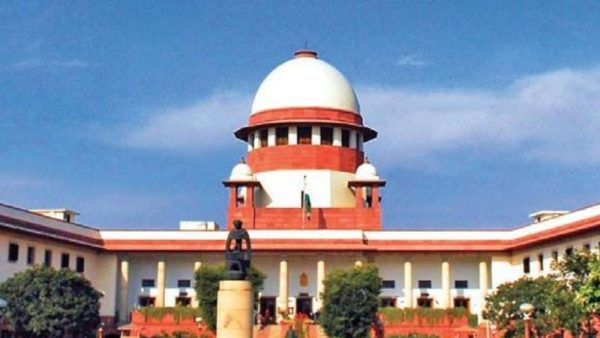New Delhi: The Supreme Court on Wednesday upheld ED powers of inquiry, arrest, attachment of property while hearing petitions challenging the constitutionality of several provisions of the Prevention of Money Laundering Act today. Under the stringent PMLA law, the power of arrest, granting bail, seizure of property are all outside the ambit of the Code of Criminal Procedure (CrPC). The judgment is significant as it will address several issues concerning investigative powers, witness summoning, arrests and seizures made by the Enforcement Directorate (ED), and the bail process under the PMLA law.
Backing the Enforcement Directorate with a crucial judgement, the Supreme Court rejected almost all objections raised against the probe agency regarding several powers including initiating an investigation, the power to arrest, and others.
The top court has upheld almost all the stringent provisions of the Prevention of Money Laundering Act (PMLA), which were under challenge in the court. Petitioners had argued that unchecked power to arrest the accused without informing them of grounds of arrest or evidence is unconstitutional. The petitioners further said ED recording incriminating statements from an accused during questioning under the threat of being fined for withholding information amounts to compulsion.
The top court rejected these contentions. The supply of ECIR (Enforcement Case Information Report) copy in every case is not mandatory as it is an internal document, the apex court said, rejecting the petitioners’ challenge that it is similar to an FIR and the accused is entitled to a copy of the ECIR. It is enough if Enforcement Directorate, at the time of arrest, discloses grounds for such arrest, it said.
The petitioners had also argued that putting the burden of proof on the accused violates fundamental rights like the right to equality and the right to life. The Centre, represented by Solicitor General Tushar Mehta, responded by saying that owing to the serious nature of the money laundering offences and the societal need to curb it, putting the burden of proof on the accused is justified.
Another major challenge was that filing PMLA charges on cases that occurred before 2002 (when PMLA came into existence) is unconstitutional. The Centre justified it by saying that money laundering is a continuing offence, and not a single act but a chain. Proceeds of crime could have been generated before 2002 but could have still been in possession or in use by the accused post-2002.
The court backed the centre in all of these concerns today. The top court had earlier reserved its order on a batch of petitions challenging certain provisions of the Prevention of Money Laundering Act (PMLA). The petitioners include politician Karti Chidambaram and former Jammu and Kashmir Chief Minister Mehbooba Mufti, among others.
The centre had justified the constitutional validity of the provisions of PMLA. The centre had defended the amendments to PMLA, saying money laundering poses threat not only to financial systems but the integrity and sovereignty of nations, since money laundering is conducted not just by corrupt businessmen like Vijay Mallya or Nirav Modi but also by terror groups.















